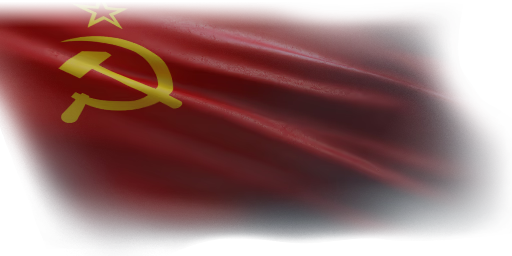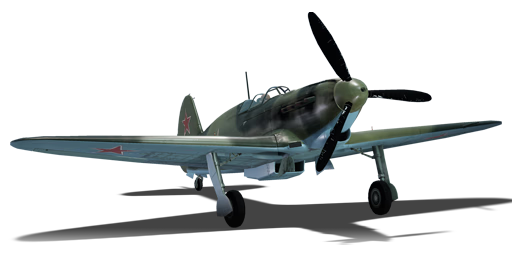



The Yakovlev Yak-7B is the third variant of the Yak-7 fighter aircraft family. The Yak-7 began as a two-seat trainer designed to support the Yak-1 family, armed with only one 7.62 mm ShKAS light machine gun for gunnery practice and dual-control cockpits for the student and instructor. The Yak-7 factory's engineers immediately began work on a prospective single-seat fighter adaptation of the twin-seat Yak-7. Rather than removing the back instructor's space, it was retained for future possibilities. The single-seat Yak-7 was officially introduced in 1942 and had limited production. The Yak-7A went into service as an improved variant of the standard Yak-7, with around 300 aircraft constructed and introduced in late 1942. For improved high-altitude performance, this modified variant included the M-105PA V12 liquid-cooled inline piston engine with 1,050 horsepower. Initially, the Yak-7A was armed with one 20 mm ShVAK cannon firing through the propeller hub and two 7.62 mm ShKAS light machine guns in the engine cowling. This was later changed to two 12.7 mm Berezin UB heavy machine guns. The Yak-7B was the standard Yak-7's second improved variant. The Yak-7B featured a shorter wingspan, upgraded onboard equipment, and production-friendly improvements to the undercarriage over the Yak-7A. An incredible 5,000 aircraft were built to this specification.
Introduced in the Open Beta Test prior to Update 1.27, the Yak-7B is not as manoeuvrable as its cousins, but it is competitive nonetheless. It is critical that you stay close to friendly high-flying aircraft. If you are being aggressively pursued by enemy aircraft, consider pulling the opponent near your allies. As the ammunition count is limited, trigger discipline is required. Even without the Wartime Emergency Power (WEP), the Yak-7B is a competent climber. Maintaining altitude allows you to dive away if things become problematic in the middle of a fight with an enemy. Because the wings rip quickly, steep dives should be avoided. It is, however, a capable high-altitude aircraft, and in the hands of an experienced player, the Yak-7B can easily earn a few kills during battles.
flaps
flaps
flaps
brake
| Belt | Belt filling | Armor penetration (mm) at a distance: | |||||
|---|---|---|---|---|---|---|---|
| 10 m | 100 m | 500 m | 1000 m | 1500 m | 2000 m | ||
| FI-T/AP-I | 28 | 24 | 14 | 7 | 4 | 2 | |
| FI-T/HEF/AP-I/FI-T | 28 | 24 | 14 | 7 | 4 | 2 | |
| HEF/FI-T/AP-I | 28 | 24 | 14 | 7 | 4 | 2 | |
| FI-T | 4 | 4 | 4 | 4 | 4 | 4 | |
| AP-I/FI-T/AP-I/AP-I | 28 | 24 | 14 | 7 | 4 | 2 | |
| AP-I/HEF/HEF/FI | 28 | 24 | 14 | 7 | 4 | 2 | |
| Belt | Belt filling | Armor penetration (mm) at a distance: | |||||
|---|---|---|---|---|---|---|---|
| 10 m | 100 m | 500 m | 1000 m | 1500 m | 2000 m | ||
| T/AP/AP/IAI | 32 | 30 | 22 | 15 | 11 | 7 | |
| AP-I/API-T/IAI/IAI | 29 | 27 | 20 | 13 | 9 | 6 | |
| API-T/AP-I/AP-I/IAI | 29 | 27 | 20 | 13 | 9 | 6 | |
| AP-I(c)/AP-I/AP-I/API-T/IAI | 34 | 32 | 24 | 17 | 12 | 8 | |
| API-T | 29 | 27 | 20 | 13 | 9 | 6 | |
| AP-I/AP-I/IAI | 29 | 27 | 20 | 14 | 9 | 6 | |












Flight performance | |
|---|---|
Survivability |
|---|
Weaponry | |
|---|---|